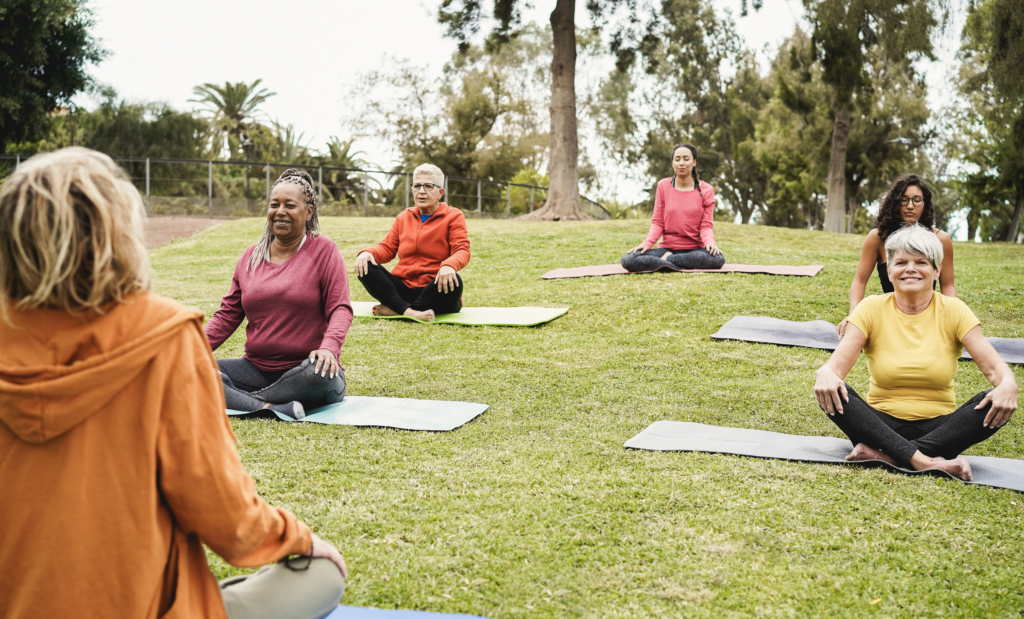Exploring Holistic Health Practices Among Women

As adolescents and young adults, most of us probably did not spend too much time thinking about our health. Checkups, medicine, vitamins, and not eating too much sugar was the extent of it for me. But as I matured, my definition of health began to change as I began to think about what feeling healthy actually meant. This lead me toward a more holistic mind-body approach, one that has gained popularity in recent years.
While the rising popularity of holistic health practices maks it seem that these are new therapies, holistic care is rooted in ancient traditions. Hippocrates, the father of medicine, believed in natural healing and mind-body connections. His theories influenced the development of traditional Chinese medicine (TCM) and ayurveda.
With 37% of U.S. adults using alternative health therapies to improve their wellness, it is clear that more people are looking beyond traditional medicine to feel better. Read on to better understand what holistic health care means and which practices are trending for women this year.
What Is Holistic Health Care?
Holistic health care, according to the American Institute of Health Care Professionals (AIHCP), is a comprehensive approach to wellness. It does not just treat symptoms but works to balance the body, mind, and spirit. Holistic practices combine the physical, mental, emotional, social, and spiritual components of well-being to treat the whole person.
Some of the core principles of holistic health care are:
- integrating conventional and alternative therapies
- prevention and self-care
- patient education and empowerment
- individualized care
- the healing power of the body

Functional Nutrition
We all know a healthy diet is important. Functional nutrition, reported as a growing area in McKinsey’s recent Future of Wellness survey, takes it further by looking at food as preventive medicine.
According to Maria Mascaraque, Head of Food and Nutrition at Euromonitor International, functional nutrition is key to promoting women’s wellbeing at different life stages. Specific nutrients in different foods can support your body through various issues. These include hormonal balance, pregnancy and postnatal care, digestive health, metabolic syndromes, cardiovascular diseases, joint paint, cognitive issues, stress, and anxiety.
The McKinsey survey also found consumers are seeking specific benefits from functional nutrition. The most sought after benefits included: increased energy, better gut health, improved immunity, and muscle, bone, and joint support.
Health Tracking With Wearables
Wearable devices have made individualized care more accessible than ever. Personalized health data is helping people better understand their bodies’ unique needs, which is why almost one-third of Americans use wearables.
“The future of wellness is personalized and evidence-based…modern tech is making it possible to…get personalized recommendations that actually work for your specific body and nervous system type,” said Loren Hogue, Somatics Coach and Co-CEO of NEUROFIT in an interview with Women.com.
Dr. Jolene Brighten, a licensed naturopathic physician and leader in women’s medicine, said some wearables are designed specifically with women’s health in mind. They can provide data to help women better address issues including maternal health, perimenopause, postpartum recovery, fertility, and cycle syncing.

Wellness Travel
The idea that taking an intentional break from your routine and environment to improve your mental and physical health is not new. However, interest is surging according to Tara Lewis, Yelp Trend Expert and VP of Consumer Engagement. Increased searches for fitness retreats (up 83%), wellness retreats (up 58%), postpartum retreats (up 475%), and holistic retreats (up 68%) show that people are prioritizing their wellness.
The Global Wellness Institute also reported an increase in wellness travel initiatives around the world. Government-led programs such as Singapore’s therapeutic gardens focus on mental health, while Australia has created immersive wellness walks with interactive elements. Companies are also responding to this trend, including Clinique with a seven-day retreat meant to optimize brain health and performance.
The wellness travel trend emphasizes people’s need for experiences that address the mental, physical, and emotional aspects of health. For women, that includes retreats for specific life stages, like menopause retreats that offer support, community, education, and relaxation therapies.
These trends highlight a shift. Women are choosing holistic wellness practices over quick fixes, prioritizing meaningful and personalized support.






